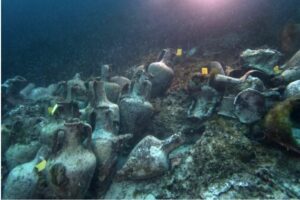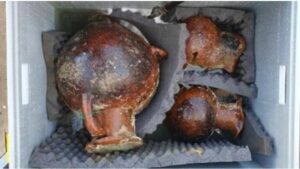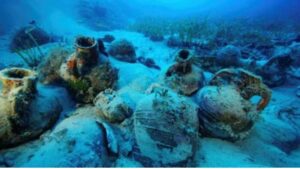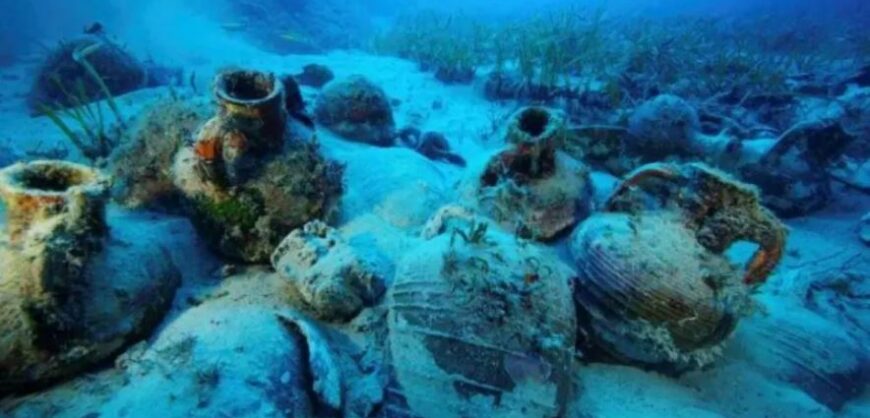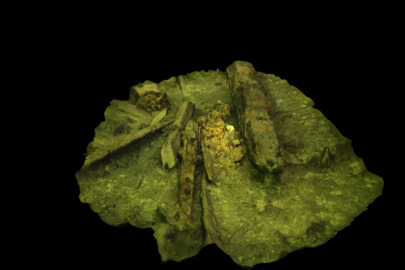Important new information about the commercial activity of the ancient world in the Mediterranean Sea came to light from an underwater archaeological discovery made in the Otranto Canal, Italy. According to the dating of the numerous ceramic utensils that were retrieved from the wreck of a Corinthian ship, it appears that the trade relations between Greece and Italy in antiquity began earlier than believed.
The wreck was located during the construction of the Adriatic Natural Gas Pipeline (TAP), which began in 1918, in a sea area 22 miles off the Italian coast and at a depth of 780 meters. The work was immediately interrupted in order for the underwater archaeological research to start immediately.
Specifically, in the Corinthian shipwreck, more than 200 ceramic utensils were found, including vases, amphorae, and cups of wine used in their meetings by representatives of high society, as well as some food scraps. For their safe transport, in fact, some of the ceramics were placed in large clay jars.
Of all the utensils inside the wreck, 22 were retrieved and transported, in the first phase, with the help of a special submarine with cable guidance and a suction pump. The experts were surprised to find, from the special examinations in which the findings were submitted, that they date to 7th BC, that is, much earlier than the period indicated by the existing historical data until today. That is exactly why Italian Culture Minister Dario Franceschini, speaking to the Corriere della Sera newspaper, spoke of “a great archaeological discovery”.
